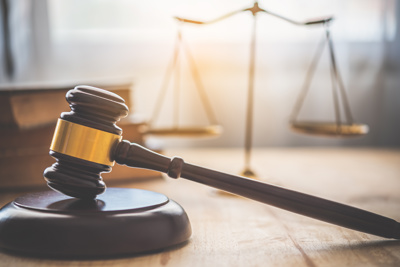The principle and the conditions for the appointment
The rule is that the company’s governing organs and bodies ensure its functioning, and that courts do not – in principle – intervene in its daily life (principe de non intervention). When courts do intervene, their intervention is generally limited to severe situations where the urgency and necessity are clear. Thus, the judicial appointment of a provisional director is considered an exceptional measure.
In order to appoint a provisional director, the requesting party must have both standing and an interest in doing so. Since the court’s intervention seeks to preserve the company’s interests, on a curative and/or preventive basis, the company itself (as a separate legal entity with legal personality) and its organs are well placed to request the measure. Shareholders and, under limited conditions, creditors, may also request the appointment.
The conditions for the appointment generally require the requesting party to prove that the company is no longer operating normally and that there is an imminent danger which poses a serious threat to the company. A company may be in an abnormal situation and may be deemed to malfunction if it is not possible to convene shareholder meetings, in the event of challenges to the validity of the composition of the company’s organs or the ownership of shares, further to the disappearance, deficiency or paralysis of the company’s governing organs and bodies, etc.
Requesting parties also need to demonstrate that inaction would lead to certain, imminent and irreversible damage, and that the malfunctioning poses a serious threat to the existence of the company. Courts tend to assess the corporate interest (intérêt social) rather than the shareholders’ interest when deciding whether thei intervention is justified.
In practice, to stand the best chances of success, requesting parties typically bring forward examples of irregular management decisions, and illegal or possibly fraudulent acts, as well as the resulting damages to the company, in line with their interest to safeguard the value of their investment.
Such irregular acts and decisions may include disregard for the company’s governing rules and decision-making process, the failure to convene shareholders’ meetings, the irregular termination of managers’ mandates, the violation of the company’s articles of incorporation or other legal or contractual obligations, the lack of funds to meet the company’s obligations, the illegitimate refusal to provide information to shareholders, the failure to meet obligations to creditors, etc. and other decisions taken against the corporate interest.
The requesting party’s argument that irreparable damage is imminent may be stronger if it can demonstrate that irregular decisions were made as well as the need for immediate cash influx.
The appropriate forum and the legal basis
Because the appointment of the provisional director generally seeks to improve the state of crisis of the company on an urgent basis, the judge of summary proceedings (juge des référés) is an appropriate forum to bring the request. This jurisdiction does not seek to address the merits of the issue on a permanent basis but rather orders urgent temporary measures to preserve rights, for example pending the final resolution of an internal crisis.
In principle, nothing would prevent a party from requesting this measure as part of its demands in proceedings on the merits. In the context of corporate disputes, the intervention of the summary judge would need to comply with the principle of minimum interference in the company’s affairs and to be subsidiary in nature (“principe du dernier recours” or “principe de non-intervention”). Judicial intervention would generally only be tolerated when other modes of conflict resolution have failed, and that agreements are of no assistance.
In support of its request when dealing with corporate and financial disputes, it may be
useful for the requesting party to demonstrate that the intervention of the summary judge is proportional to the situation it seeks to redress, that the benefit of the measure outweighs the prejudice suffered by the company and other stakeholders, that it is efficient, useful and that there is no other less damaging means to obtain redress.
The scope and duration of the provisional director's mission
The judgment appointing the provisional director will determine the scope of its powers and the duration of its mission, which will be in line with the arguments brought forward by the requesting party and the corporate interest.
The provisional director will be vested with the powers conferred by law on the company’s managers, and will be responsible for managing the company in place of its directors for a specified period. In doing so, the provisional director will have to protect a variety of interests, including of the company, the managers, the shareholders, the employees and in some cases, even third parties. The provisional director should always be guided, first and foremost, by the corporate interest.
In practice, requesting parties often define the desired scope and duration of the mission in their request, so as to guide the court to render the desired ruling. They may request that the court grants the provisional director wide powers to actively manage the company and exercise powers which would otherwise belong to its
board of directors, or perform very limited duties (such as convening a meeting of directors or shareholders or taking specific conservatory measures), depending on what is needed to pursue the company’s normal activities and its best interest, for the duration that is appropriate under the circumstances (for example until a transaction is finalized, pending the resolution of an internal dispute resulting in blocking the decision making or pending judgments on questions of law concerning specific assets, etc.).
There is in principle no limit as to the scope that the requesting party may suggest to the court. It may specifically request that the provisional director be appointed to perform the daily management and administrative duties of the company, ensure the preservation and enhancement of the value of its assets, take certain financial initiatives necessary to ensure that the company can meet its obligations, exercise voting rights, search for assets which would have been disposed of irregularly and consider action to recover these assets, dispose of certain assets or prevent assets from being disposed of, etc. The requesting party may suggest the name of a provisional director candidate in its application.
Although courts enjoy large powers to define the role of the provisional director, they tend to limit these powers to what is needed to specifically preserve the interests at risk. Thus, when the request is granted, requesting parties should expect the scope of the provisional director’s mission to focus on finding solutions to management difficulties on the short and long term, and that the duration will be limited to what is strictly necessary to unblock the situation. The mere appointment of a provisional director is sometimes sufficient to ease the tensions between shareholders and/or the organs of the company.
The appointment of a provisional director results in the managers of the company temporarily losing their prerogatives. In practice, this means they can neither manage the company, nor act in its name. However, they remain able to challenge the scope of the provisional director’s mission before the judge, either by appealing the initial decision to appoint, or during the course of the provisional director’s mission if new relevant circumstances have arisen.
The law of 7 August 2023 on business preservation and the moderinzation of bankruptcy law
Under Article 10 of the Law of 7 August 2023 on business preservation and the modernization of bankruptcy law, in situations of serious misconduct from the debtor or one of its organs, any interested third party (or the public prosecutor) may petition the presiding judge of the district court (Tribunal d’arrondissement) sitting in commercial matters and as in summary proceedings, to appoint one or more judicial representatives (mandataires de justice).
The order appointing the judicial representative shall define the scope and duration of its powers and mission. In the absence of case law on point, it remains uncertainty whether and how its role, function and utility will differ from a provisional director’s.
This article was first published by the AGEFI Luxembourg.

Read part one here!
Rules of civil procedure are deemed to be at the service of the parties to a dispute, as the form is meant to be an instrument of the realization of justice. Although they do not directly concern the merits of a case, rules of civil procedure carry a significant strategic importance for all parties involved. It is essential to master them to reach the desired outcome.






